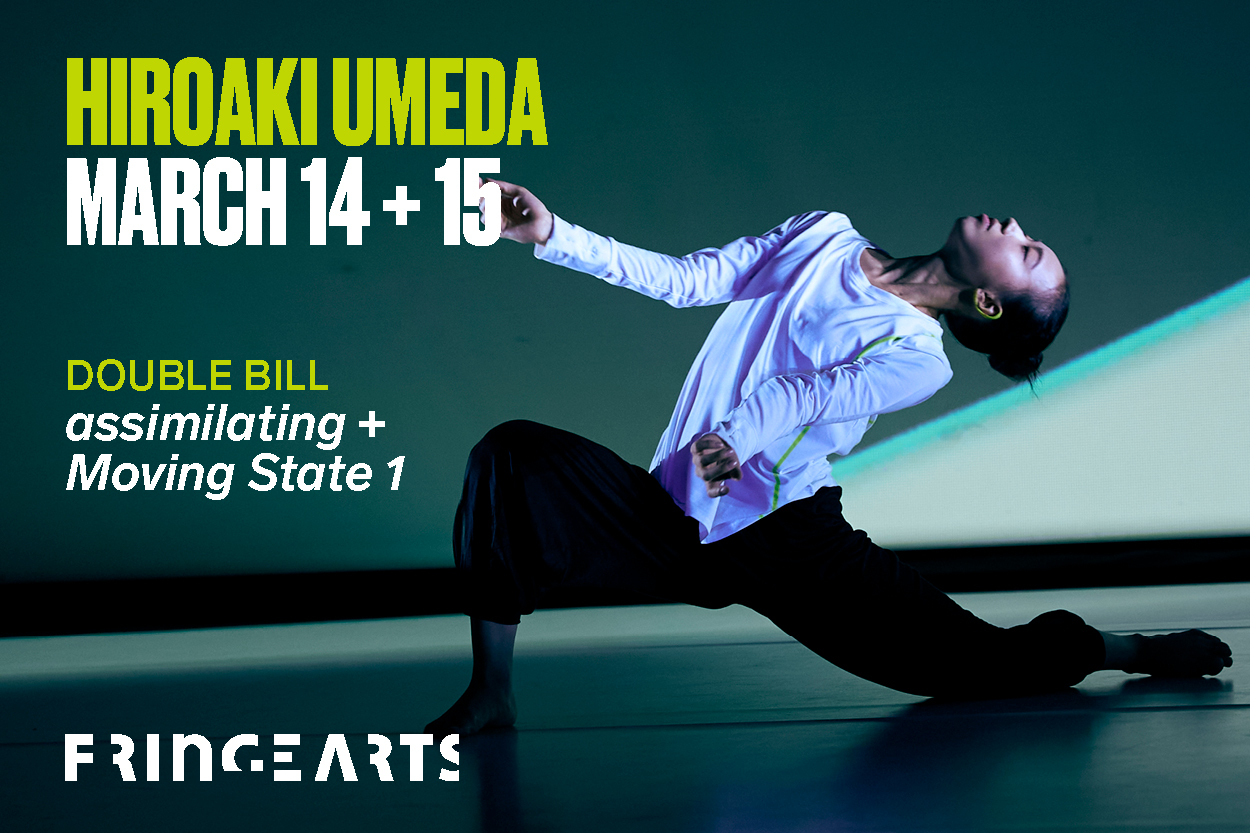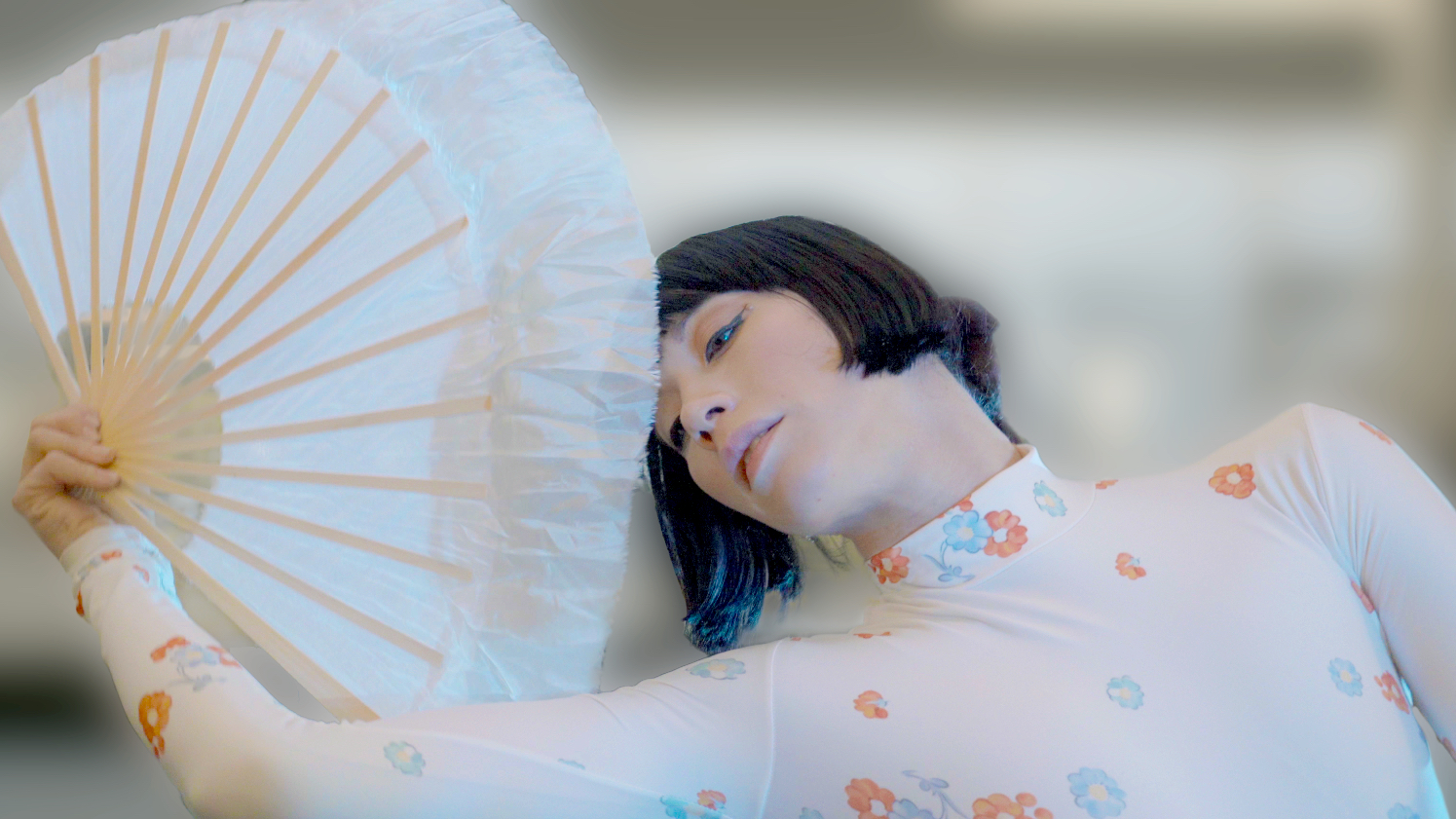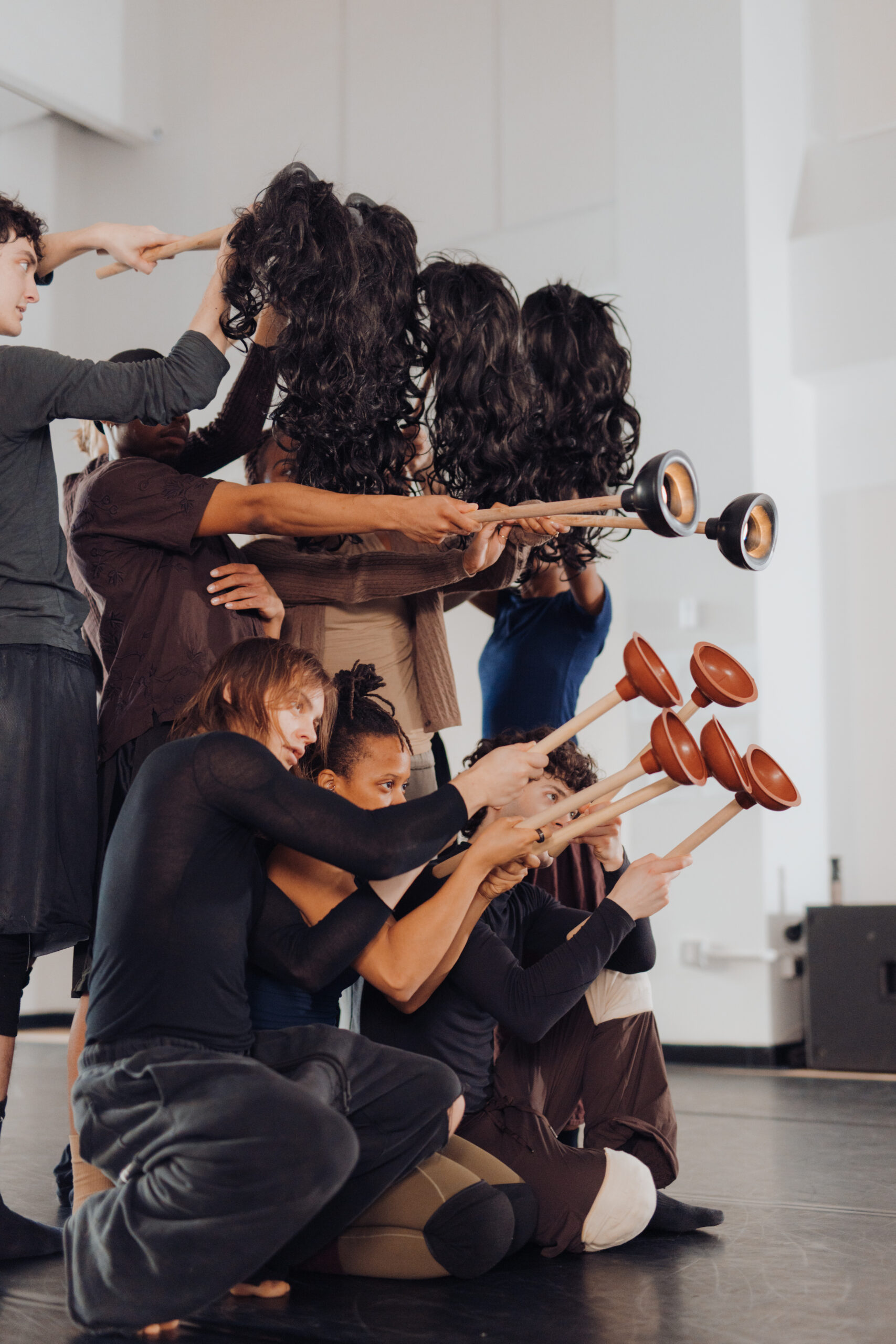Offered as a subverted prayer, Another Agatha calls upon 15-year old virgin martyr St. Agatha of Sicily. In this multi-modal dance, Migration Theory, a “physical art ensemble” from Boise, attempts to unearth the remnants of St. Agatha’s horrid experiences leading up to her death, which are buried inside the Agathas of the world—and by Agathas, I mean all women.
Here, “Agatha” also refers to the artist-stage-hands that serve as our care-takers throughout the piece. They communicate through written messages and lead us to a bench on either side of a long raw wooden table, dimly lit by string lights. One Agatha hands us headphones. The others dart around, fill cups with tea or water, and place small round cakes topped with a cherry in front of each seat. I later learn that these sweet treats are a traditional dessert served at the festival for St. Agatha and represent her severed breasts—one of the many tortures she endured in her young life.
The cadence of an Italian woman’s voice drips into my ear, giving warmth and comfort. I am sensually submerged. The Agathas pull the benches (on wheels) away from the table, divide us into two groups at the far ends, and arrange us facing the space between.
Dancers rotate the tables, leap over them, stand and fall off them, illustrating the company’s dexterity and creative command of each moment. But Another Agatha is crowded with words. There is a constant stream of story, narration, and poem tempered occasionally by sweet singing in Italian. I know I am missing the brutal and evocative potential of the words. The sound is close, which is in part delightful, but I ache to collect and retain it all and I feel cut off from the dance itself.
Between the curtains of words, I catch a few mesmerizing moments: an Agatha-person opens a suitcase and wistfully handles a paper boat; a woman in a flowing white gown keeps a straight gait atop the length of rotating tables; a dancer falls backwards into the arms of another, tilts their eyes up to heaven as in classic mythological paintings. I also catch the should-have-been-edited-non-sequitur-dances: a duet, backed by projections and narration, grossly embodies stereotypes of Philly, followed by a trio set in Boise, complete with cowboy hat, in the same manner.
“Migrating and fucking is how we got here,” says a man’s voice in my ear. We are all descendants of Agatha.
St. Agatha was brutally martyred (read: imprisoned and raped relentlessly) because she was a young woman of faith who turned down a man who desired her. For all the layers that Another Agatha presents, I went home thinking about the hope that survivor women have for other women: “may you never know this kind of tired.”
Another Agatha, Migration Theory, Vox Populi Gallery, 2019 Fringe Festival, September 17-19.






